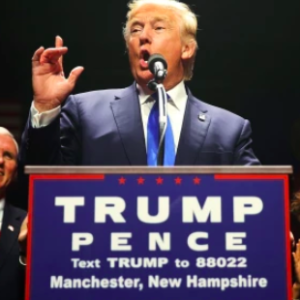As many top economists predict an impending recession — a theory bolstered by new data seemingly every day — American voters are starting to doubt whether the economy is in good shape after all, and they are questioning whether President Donald Trump is to blame.
According to a recent Quinnipiac poll, more voters think the economy is getting worse rather than better for the first time since Trump was elected in 2016, with “37 percent saying it’s getting worse, 31 percent saying it’s getting better, and 30 percent saying it’s staying the same.”
The poll also found that 41 percent of voters believe Trump’s policies are hurting the economy, as opposed to 37 percent who think his policies are benefitting the economy and 20 percent who say his policies make no difference.
According to Spencer Kimball, Director of Polling at Emerson College, tariffs are driving the negative outlook on the economy, which means public perception of Trump’s economic policies is entirely within his control.
“I think what’s really driving it is the conversation about tariffs, do they hurt the economy or not hurt the economy?” he told InsideSources. “And I think that’s something the president can control at the end of the day, because he created this conversation. I think he has some control over the expectations in the economy, whereas other presidents were stuck on economic factors outside of their control.”
The Michigan Consumer Sentiment Index recently released its August data, finding that consumer confidence is at its lowest level since 2012. But, the index also shows consumer confidence is higher now than it was during the entire Obama administration, and is higher than it was in 1991 and 1992, at the start of the recession during George H.W. Bush’s presidency.
“[Trump’s] numbers are very similar to where Clinton was in ’96,” Kimball said. “When you start comparing to other presidents, you see the same thing as Bush in ’04. Consumer confidence hasn’t been this high in 40-50 years.”
Because of those numbers, Kimball said he “isn’t ready” to say Trump is done.
“He’s better off than Carter in 1980,” Kimball said.
David Byler, a data analyst and political columnist, told InsideSources in an email that “while a recession would damage Trump’s reelection chances, the link between economics and politics is weaker than it’s been in the past.”
A 2018 Gallup poll found that when a Republican is in the White House, Republicans tend to be more “upbeat” about the economy, regardless of what the economic data says. Similarly, when a Democrat is in the White House, Democrats are more positive about the economy irrespective of the data.
This suggests that despite Wall Street’s growing fears of a looming economic downturn, Democratic presidential hopefuls may struggle to woo Trump’s voter base on economic issues.
When asked if they would vote for Trump or Biden, Buttigieg, Harris, Sanders or Warren, all Republicans surveyed by Quinnipiac said they would vote for Trump. However, the Quinnipiac poll predicts Biden, Buttigieg, Harris Sanders and Warren all would beat Trump in 2020 by at least 8 percentage points (Quinnipiac predicts Biden would win by the largest margin at 16 percentage points, with Sanders close behind at 14), suggesting that independent voters will be the wild card in 2020.
“In hypothetical matchups between President Trump and the top five Democratic presidential candidates, one key number is 40,” said Quinnipiac University Polling Analyst Mary Snow. “It’s the ceiling of support for Trump, no matter the candidate. It hovers close to his job approval rating, which has stayed in a tight range since being elected.”

